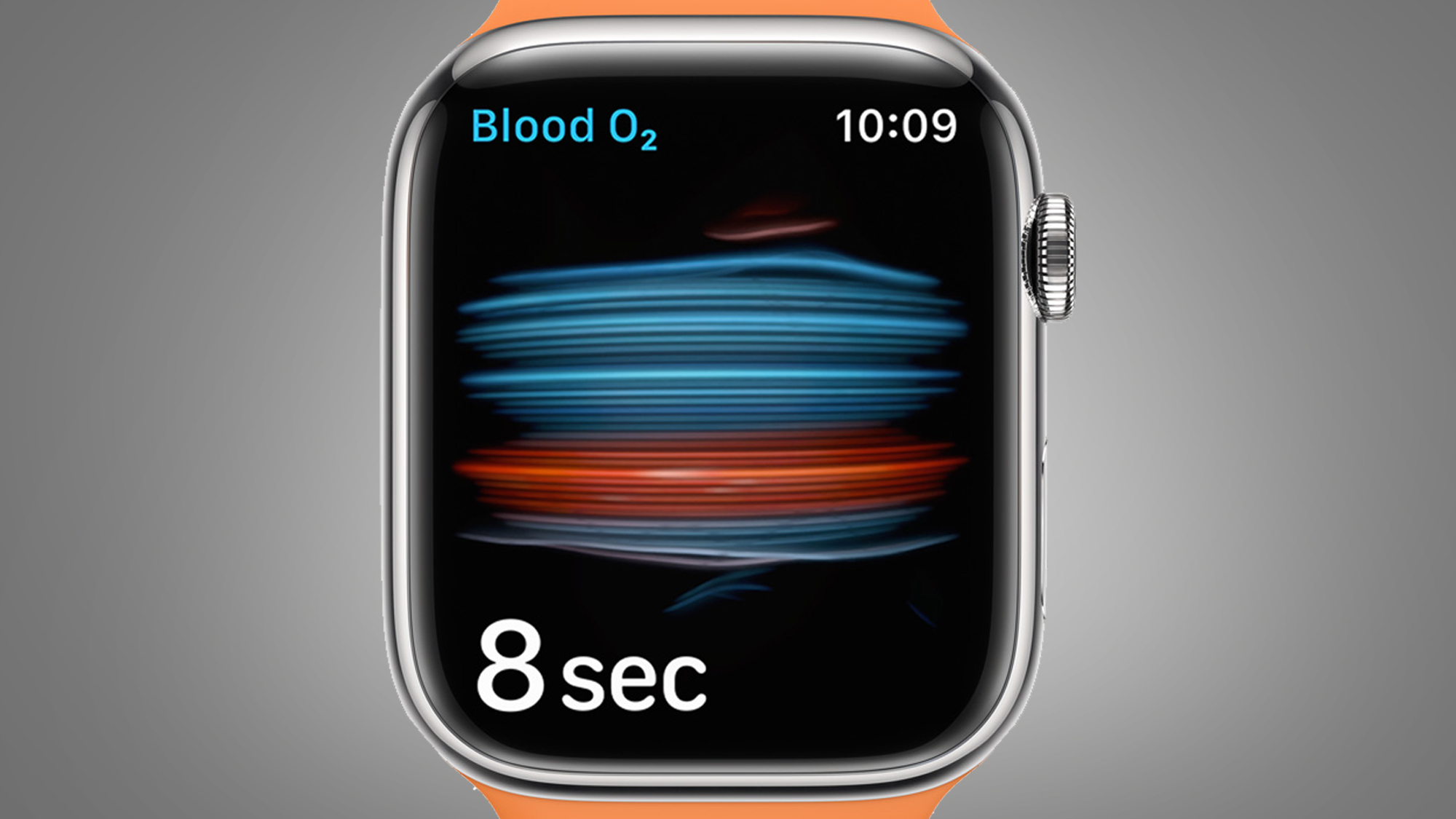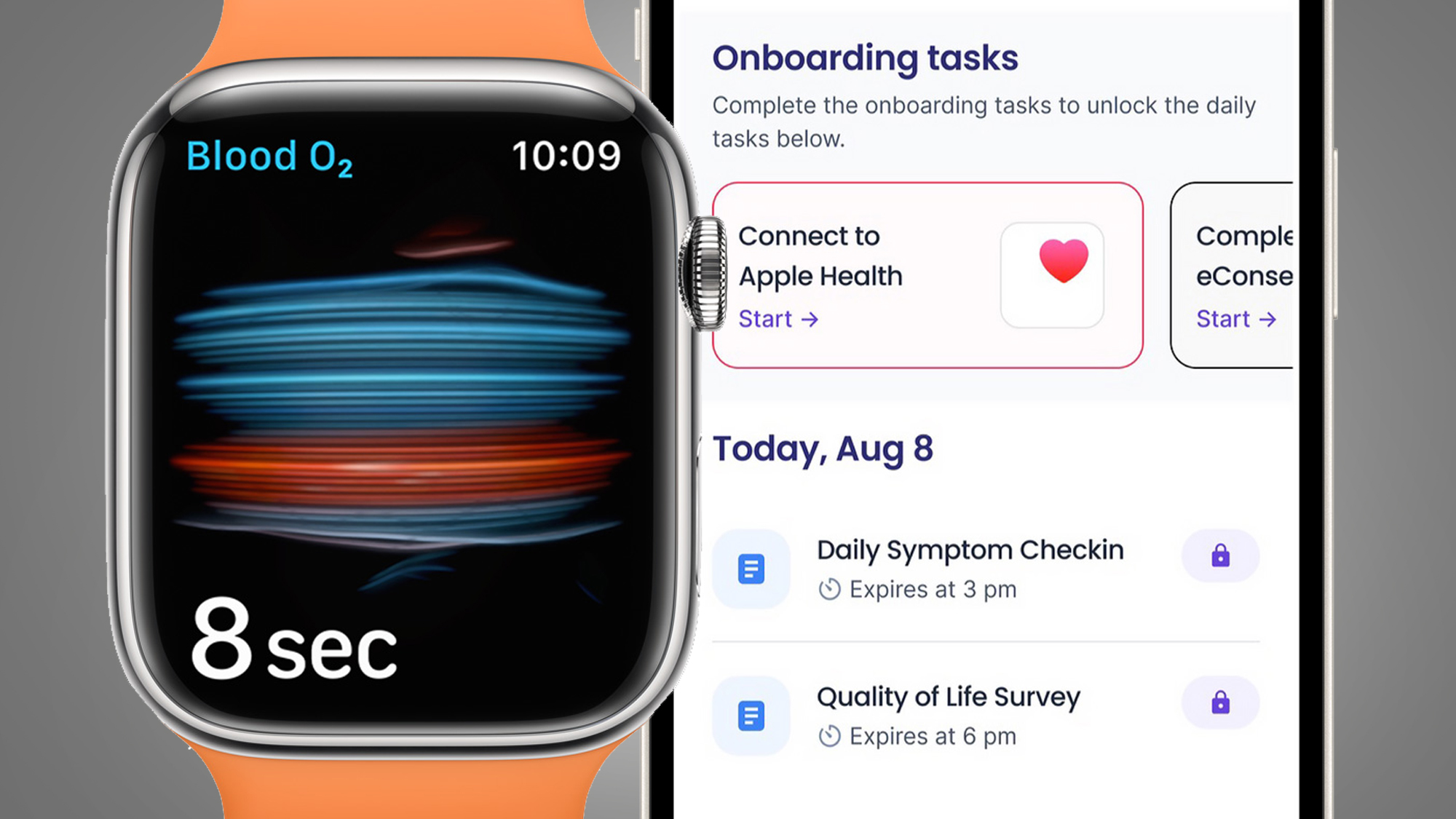Apple has taken another small step towards developing a breakthrough blood glucose monitoring feature for the Apple Watch, according to rumors – but the feature is still years away.
A new report from Bloomberg claims that Apple has hit a "major milestone" in bringing non-invasive, continuous blood glucose monitoring to the Apple Watch, with the project now considered to be at the "proof-of-concept" stage. The key change appears to be the technology is now viable, but "needs to be shrunk down to a more practical size".
In theory, this next-gen form of blood glucose monitoring could be life-changing for diabetes sufferers. Many people with the condition need to monitor their blood sugar levels, which has traditionally been done using finger-prick tests. More recently, it's been possible to do this with flash glucose monitors or CGMs (continuous glucose monitors) like the Freestyle Libre 3.
The latter can send readings to third-party apps on the Apple Watch, but the new technology described in Apple's secret 'E5' project could take the convenience of monitoring blood sugar to another level. Patches need to be replaced every couple of weeks, but Apple's technology apparently uses a technology called "silicon photonics" which fires light through your skin's interstitial fluid to determine your blood glucose level.

But while the technology is promising, it's also a long way off. Bloomberg says there's "still years work ahead" and the system has been in development for more than 12 years. Apple's engineers are apparently working on a prototype that's "about the size of an iPhone", so incorporating it into an Apple Watch is still a distant prospect.
The 'proof of concept' stage is very early in a product's life cycle and is far from a guarantee of an idea becoming consumer reality. For example, a Google firm started a project with the pharmaceutical company Novartis in 2014 that aimed to develop a glucose-sensing contact lens, but it was ultimately abandoned after they found there was "insufficient consistency in our measurements".
Still, the news of a step forward for this potential Apple Watch tech, however small, is a promising one for the growing number of diabetes sufferers (who number 1 in 10 people in the US, and 1 in 14 people in the UK). While many of the world's best smartwatches can already help you monitor blood glucose levels, they usually rely on connecting to external monitors to do this and aren't classed as medical devices.
Analysis: Not an imminent Apple Watch feature

Apple has been gradually adding new health-focused sensors to the Apple Watch – from the heart-rate sensor for taking an electrocardiogram (or ECG) on the Apple Watch Series 4, to the blood oxygen sensor on the Apple Watch Series 6.
These certainly have their benefits, with Apple keen to promote their use in some recent heart health research projects. But they also aren't replacements for medical-grade devices, which means the Apple Watch is more of a screening device for the latter – and the same will likely be true of its rumored blood glucose monitoring tech.
As the Apple Watch's current sensors show, the hurdle is less in miniaturizing the technology and more in getting a high enough level of accuracy in health readings. TechRadar's Fitness & Wellbeing editor Matt Evans explains: "It's worth noting the similarities between this and the Apple Watch's electrocardiogram functionality, which is designed to show signs of atrial fibrillation. Due to the complexity of getting devices legally authorized for medical use by governing bodies such as the FDA, it's only a suggestion to go to the doctor and check your heart out properly – although this can still be incredibly useful".
"Even the Huawei Watch D, with its dedicated blood pressure hardware, isn't able to be used for a medical diagnosis purpose," he says. "Actual diabetics, who need to monitor their blood sugar level constantly, are unlikely to be able to use an Apple Watch for anything other than a quick estimate, as early-adopting tech like this isn't always accurate and certainly won't be certified to be used in a medical setting. However, sometimes a notification to get checked properly is all you need."
As for Google's glucose-sensing contact lens project, the problem that ultimately scuttled the project was "insufficient consistency in our measurements". Apple's apparent breakthrough is certainly a promising one, and few companies can match its financial might. But the promise of non-invasive blood glucose monitoring isn't something that should affect your smartwatch buying decision anytime soon.
from TechRadar - All the latest technology news https://ift.tt/D7HtcYC
Aucun commentaire: